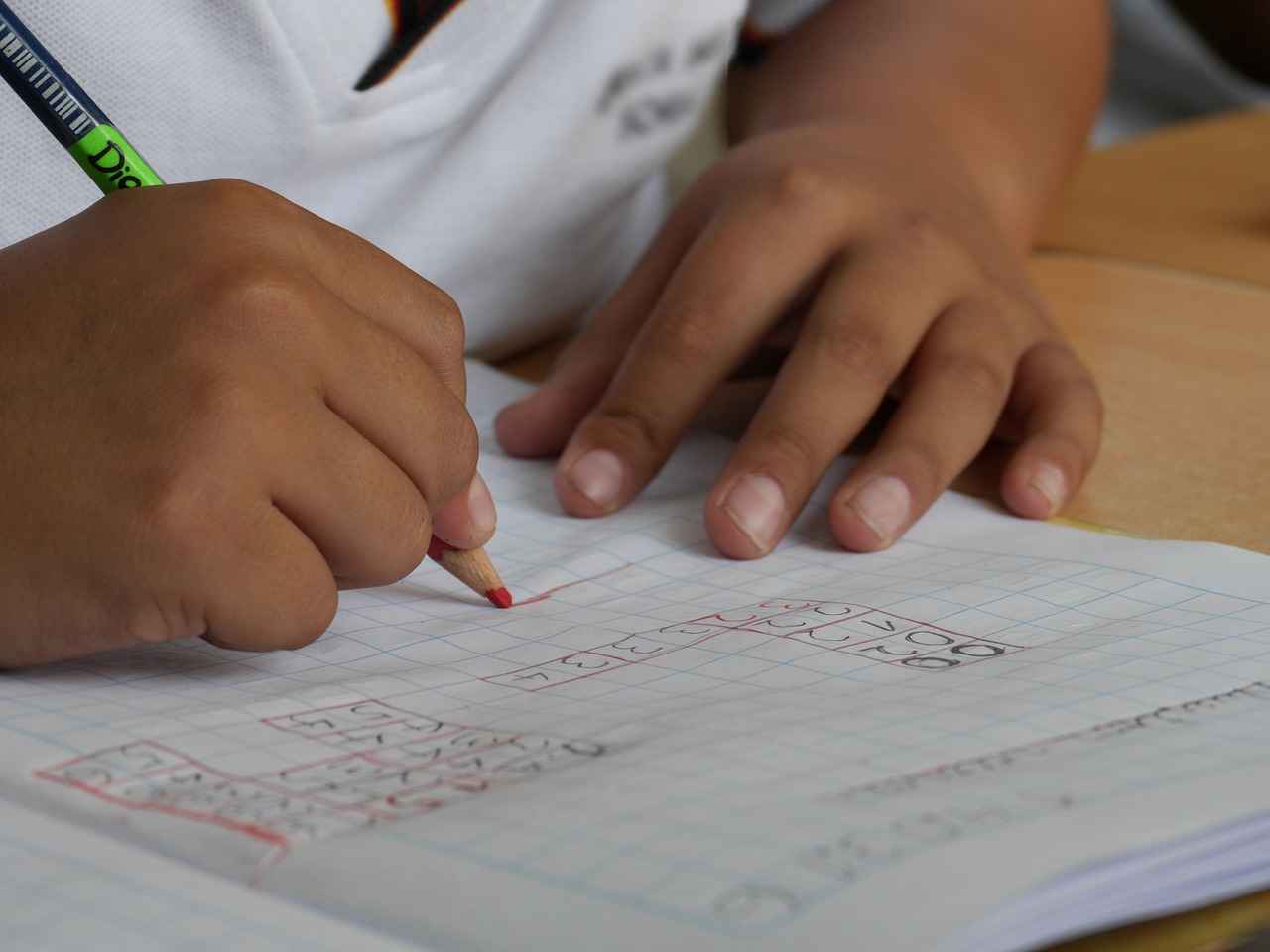Learning to play the piano is a rewarding yet challenging endeavor that many people embark upon. This article delves into the various challenges and rewards associated with learning piano, providing valuable insights for beginners to effectively navigate their musical journey.
For beginners, the journey often begins with a series of hurdles. One of the most significant challenges is reading music. Many new learners find themselves overwhelmed by musical notation, which can seem like a foreign language. Additionally, mastering finger placement and developing coordination between both hands can be daunting. Understanding these initial challenges is crucial as it helps beginners approach their learning with a realistic mindset.
The timeline for learning piano varies widely among individuals. Factors such as commitment, practice frequency, and prior musical experience all play a role in determining how quickly one can progress. On average, many beginners may take anywhere from a few months to several years to achieve a level of proficiency. Setting realistic expectations can help learners stay motivated.
Establishing a consistent practice routine is essential for success. For beginners, practicing for 30 minutes a day can be an effective starting point. As learners gain confidence, they can gradually increase their practice time to enhance their skills without feeling overwhelmed.
Utilizing effective practice techniques can significantly improve the learning experience. Beginners are encouraged to:
- Break pieces into manageable sections
- Use a metronome to develop timing
- Focus on slow practice to build accuracy
These techniques not only streamline the learning process but also foster a sense of achievement as learners master each component.
Setting achievable goals is vital for maintaining motivation. Beginners should aim for both short-term and long-term goals. Short-term goals could include mastering a simple song or learning a new scale, while long-term goals might involve preparing for a performance or passing an examination.
Identifying common pitfalls can help prevent frustration. Many beginners struggle with:
- Neglecting finger strength and dexterity
- Skipping warm-up exercises
- Rushing through pieces without understanding them
Awareness of these mistakes allows learners to adjust their practice habits for better results.
Numerous resources exist for beginners, ranging from online courses to traditional lessons. Each option has its pros and cons, and it’s essential to choose a method that aligns with personal learning styles. Popular platforms often offer structured lessons, while traditional lessons provide personalized feedback.
Choosing between online courses and traditional lessons can be challenging. Online courses offer flexibility and often a broader range of materials. However, traditional lessons provide direct interaction with instructors, which can enhance understanding and motivation.
Technology has transformed music education. Some of the best apps for piano learners include:
- Simply Piano – Great for beginners with interactive lessons
- Piano Maestro – Engaging for younger learners
- Flowkey – Offers a wide range of songs and tutorials
These tools can make learning more enjoyable and accessible.
Maintaining motivation is crucial for progress. One effective strategy is to find a community of fellow learners. Joining a group allows beginners to share experiences, challenges, and successes, providing a support system that can keep them engaged.
Documenting progress is another powerful motivator. Beginners can keep a practice journal to note achievements and set new challenges. This reflection not only highlights growth but also reinforces the joy of learning music.

What Are the Initial Challenges of Learning Piano?
Learning to play the piano can be an exhilarating yet daunting experience for beginners. As they embark on this musical journey, they often encounter various challenges that can seem overwhelming at first. Understanding these initial hurdles is crucial for fostering a smoother learning process and enhancing overall enjoyment.
For many beginners, the journey of learning piano begins with a few common challenges:
- Reading Music: One of the most significant hurdles is the ability to read sheet music. Beginners must familiarize themselves with the staff, notes, and various musical symbols. This skill requires practice and patience, as it involves translating written notes into physical movements on the keyboard.
- Finger Placement: Proper finger placement is essential for playing the piano effectively. Beginners often struggle to find the correct positioning for their fingers, which can lead to awkward playing and hinder progress. Learning the correct fingerings for scales and chords is vital for developing technique.
- Developing Coordination: The piano requires the use of both hands independently, which can be challenging for new learners. Coordinating the movements of both hands while reading music can be a complex task, leading to frustration. Beginners must practice diligently to improve their hand coordination and dexterity.
- Understanding Rhythm: Rhythm is a fundamental aspect of music that beginners must grasp. Learning to count beats and play in time with a metronome can be particularly challenging. A solid understanding of rhythm is crucial for playing pieces accurately.
- Overcoming Frustration: The initial learning phase can be frustrating, leading to feelings of inadequacy. It’s important for beginners to recognize that progress takes time and that setbacks are a normal part of the learning process.
By identifying these challenges early on, beginners can approach their piano studies with a more informed mindset. Setting realistic goals and expectations can significantly ease the learning curve. For instance, instead of aiming to play complex pieces right away, beginners can focus on mastering simple songs and gradually increase their skill level.
Moreover, incorporating various learning resources, such as online tutorials, piano apps, and instructional books, can provide additional support. Many of these resources offer structured lessons that break down complex concepts into manageable parts, making it easier for beginners to grasp the fundamentals.
In conclusion, while the journey to learning piano is filled with challenges, understanding these initial hurdles can empower beginners to navigate their path more effectively. With dedication, practice, and the right resources, anyone can overcome these obstacles and find joy in playing the piano.

How Long Does It Take to Learn Piano?
Learning to play the piano is an enriching experience that varies greatly from person to person. The time it takes to learn piano can depend on several factors, including the individual’s dedication, practice habits, and prior musical experience. This section delves into average timelines and the various elements that can influence the speed of learning.
For many beginners, the journey to piano proficiency can take anywhere from six months to several years. Here are some general timelines based on skill levels:
- Beginner Level: 6 months to 1 year – Basic understanding of notes, simple songs, and fundamental techniques.
- Intermediate Level: 1 to 3 years – Ability to play more complex pieces, improved sight-reading, and better finger coordination.
- Advanced Level: 3 years and beyond – Mastery of intricate compositions, improvisation skills, and performance readiness.
Several factors can significantly affect how quickly a person learns to play the piano:
- Practice Frequency: Regular practice is essential. Daily practice, even if it’s just for 30 minutes, can lead to faster progress compared to sporadic sessions.
- Quality of Practice: Focused, intentional practice that targets specific skills or pieces is more effective than mindless repetition.
- Prior Musical Experience: Individuals with a background in music may find it easier to learn piano due to their understanding of musical concepts.
- Learning Methods: The choice between traditional lessons, online courses, or self-teaching can impact the learning curve. Each method has its strengths and weaknesses.
- Personal Motivation: A strong desire to learn and personal goals can accelerate the learning process. Setting achievable milestones can help maintain motivation.
Establishing a consistent practice routine is crucial for progress. Beginners should aim for at least 30 minutes of focused practice each day. This can be broken down into:
- 10 minutes on scales- 10 minutes on sight-reading- 10 minutes on learning a new piece
Utilizing effective practice techniques can enhance learning. Here are a few practical tips:
- Break Pieces into Sections: Focus on mastering small segments before attempting to play the entire piece.
- Use a Metronome: This helps develop timing and rhythm, essential skills for any pianist.
- Record Yourself: Listening to recordings of your practice can provide insights into areas that need improvement.
Setting achievable goals can keep beginners motivated. Here’s how to set both short-term and long-term goals:
- Short-term Goals: Aim to learn one new song each month or master a specific technique.
- Long-term Goals: Set a target to perform at a local event or complete a specific level in a piano method book.
In summary, the time it takes to learn piano varies widely among individuals. By understanding the factors that influence learning speed and adopting effective practice strategies, beginners can navigate their musical journey more successfully.
Daily Practice: How Much Is Enough?
Learning to play the piano can be an exciting yet daunting journey for beginners. One of the most critical aspects of mastering this instrument is establishing a consistent practice routine. How much practice is enough? This question is often asked by new learners seeking to maximize their potential without feeling overwhelmed.
For beginners, it is recommended to practice for 30 minutes to 1 hour daily. This duration is manageable and allows for focused learning without causing fatigue. Regular practice helps develop muscle memory, improves finger dexterity, and enhances overall musical understanding. However, quality often outweighs quantity, so it’s essential to focus on the effectiveness of each practice session.
Here are some recommended practice durations broken down by skill level:
| Skill Level | Recommended Daily Practice Time |
|---|---|
| Beginner | 30-60 minutes |
| Intermediate | 1-2 hours |
| Advanced | 2-4 hours |
To avoid feeling overwhelmed, beginners should incorporate variety into their practice. This can include:
- Working on scales and exercises to build technique.
- Practicing simple songs to apply skills.
- Listening to music to develop ear training.
Additionally, setting short-term goals can help maintain motivation. For example, aiming to learn a new piece or mastering a specific technique within a week can provide a sense of accomplishment. It is also advisable to take breaks during practice sessions to prevent burnout and keep the mind fresh.
Finally, utilizing tools such as a metronome and instructional apps can enhance practice sessions. These resources offer structured guidance and help track progress effectively. Remember, consistency is key; even short daily practices can lead to significant improvement over time.
In conclusion, finding the right balance in practice duration is essential for beginners. By committing to a regular routine of 30 minutes to 1 hour each day and incorporating a mix of techniques and goals, learners can enjoy their musical journey without feeling overwhelmed.
Effective Practice Techniques for Beginners
Learning to play the piano can be a fulfilling yet challenging journey for beginners. One of the most significant factors that can influence a beginner’s progress is the practice techniques they employ. Effective practice techniques can significantly enhance learning and retention, making the process smoother and more enjoyable.
Utilizing the right practice techniques is vital for beginners as it helps in building a strong foundation. Effective practice not only aids in mastering the instrument but also boosts confidence and motivation. Here are some practical tips to enhance your piano learning experience:
One of the most effective methods for mastering a new piece is to break it down into smaller, more manageable sections. This approach allows you to focus on specific parts, making it easier to learn and master them individually. For instance, you can:
- Divide the piece into phrases or sections.
- Practice each section slowly before gradually increasing the tempo.
- Combine sections once you feel confident with each part.
Another essential tool for beginners is the metronome. This device helps you maintain a steady tempo, which is crucial when learning new pieces. Here’s how to effectively use a metronome:
- Start at a slow tempo to ensure accuracy in notes and rhythms.
- Gradually increase the tempo as you become more comfortable.
- Use it to practice difficult passages, ensuring you stay in time.
To keep your practice sessions engaging, it’s beneficial to incorporate a variety of techniques. Here are some suggestions:
- Visualization: Before playing, visualize your fingers moving over the keys. This mental practice can enhance muscle memory.
- Hands Separately: Practice each hand separately to focus on technical challenges without the distraction of coordination.
- Slow Practice: Always start slowly. This allows you to identify mistakes and correct them early on.
Consistency is key when learning any new skill, and piano is no exception. Establishing a regular practice routine can significantly enhance your learning experience. Aim for:
- Short, focused sessions (20-30 minutes) rather than long, exhausting ones.
- Regular practice days to build a habit.
- Flexibility to adapt your schedule as needed, ensuring you stay committed.
Finally, consider seeking feedback from teachers or fellow musicians. Constructive criticism can help you identify areas for improvement and refine your technique. Whether through formal lessons or informal jam sessions, connecting with others can provide valuable insights.
In conclusion, by implementing these effective practice techniques, beginners can enhance their learning experience and make significant progress on their piano journey. Remember, the key is to be patient, consistent, and open to adapting your methods as you grow as a musician.
Setting Realistic Goals: What Should Beginners Aim For?
Setting realistic goals is a crucial aspect of learning piano, especially for beginners. It not only helps in maintaining motivation but also provides a clear pathway to progress. In this section, we will explore how to effectively set both short-term and long-term goals that can guide your piano learning journey.
Goals serve as a roadmap for your learning experience. They help you stay focused and give you something to strive for. When you set specific, measurable, achievable, relevant, and time-bound (SMART) goals, you can track your progress and celebrate your achievements, no matter how small.
- Daily Practice: Aim for a consistent practice schedule. For beginners, starting with just 15-30 minutes a day can be effective.
- Learning a New Piece: Set a goal to learn a new piece of music every two weeks. Break it down into manageable sections to avoid feeling overwhelmed.
- Technique Focus: Dedicate time each week to focus on specific techniques, such as scales or arpeggios, to build your foundational skills.
- Repertoire Development: Aim to build a repertoire of 5-10 pieces that you can perform confidently within a year.
- Skill Mastery: Set a goal to master specific skills, such as sight-reading or improvisation, over a period of 6 months to a year.
- Performance Goals: Consider participating in a recital or local music event within a year. This can motivate you to prepare and improve.
Keeping a practice journal can be an effective way to monitor your progress. Document what you practice each day, noting any challenges or breakthroughs. This not only helps you stay accountable but also allows you to reflect on your journey and adjust your goals as needed.
As you achieve your goals, take the time to celebrate your successes. This can be as simple as treating yourself to something special or sharing your progress with friends and family. Recognizing your achievements, no matter how minor, can significantly enhance your motivation and commitment to learning the piano.
In conclusion, setting realistic goals is essential for beginners learning piano. By establishing both short-term and long-term objectives, tracking your progress, and celebrating your achievements, you can maintain your motivation and make steady progress in your musical journey.
Common Mistakes Beginners Make
Learning piano can be a rewarding yet challenging journey, especially for beginners. While enthusiasm is high at the start, many learners encounter obstacles that can lead to frustration. Identifying common pitfalls is essential to ensure a smoother learning experience. This section highlights frequent mistakes beginners encounter and offers guidance on how to avoid them.
One of the primary reasons beginners struggle is due to unrealistic expectations. Many new learners assume they will quickly master the instrument, leading to disappointment when progress is slow. It is crucial to understand that learning piano is a gradual process that requires patience and consistent effort.
- Skipping Fundamentals: Many beginners rush into playing songs without mastering the basics of music theory and finger placement. Investing time in understanding scales, chords, and reading sheet music can significantly enhance overall playing ability.
- Neglecting Proper Technique: Poor posture and incorrect finger positioning can lead to bad habits that are difficult to correct later. Always focus on maintaining a relaxed posture and using the correct finger techniques from the start.
- Inconsistent Practice: Irregular practice can hinder progress. Establishing a consistent practice routine is vital. Aim for at least 30 minutes a day, gradually increasing as you become more comfortable.
- Ignoring Rhythm: Beginners often focus solely on hitting the right notes but overlook the importance of rhythm. Utilize a metronome to develop a strong sense of timing.
- Setting Unrealistic Goals: Setting overly ambitious goals can lead to frustration. Instead, focus on achievable milestones, such as learning a simple piece before tackling more complex compositions.
- Fear of Mistakes: Many learners become discouraged by their mistakes. Embrace errors as a natural part of the learning process. Regularly recording your practice sessions can help identify areas for improvement.
To enhance your learning experience, consider the following practical tips:
1. Start with simple songs that you enjoy.2. Break down pieces into smaller sections, practicing each part thoroughly.3. Use online resources and tutorials to supplement your learning.4. Join a local music group or online community for support and motivation.5. Regularly review your progress and adjust your practice routine accordingly.
By being aware of these common pitfalls and actively working to avoid them, beginners can create a more enjoyable and productive learning experience. Remember, every pianist was once a beginner, and persistence is key to mastering the instrument.

What Resources Are Available for Learning Piano?
Learning piano can be an exciting yet challenging journey, particularly for beginners. Fortunately, there are a multitude of resources available to help learners navigate their way through this musical path. This section delves into the various options, focusing on their effectiveness and accessibility.
For those starting their piano journey, a variety of resources can facilitate learning, including:
- Online Courses
- Mobile Apps
- Books
- Video Tutorials
- Private Lessons
Online courses have gained immense popularity due to their flexibility and accessibility. Platforms like Udemy and Coursera offer structured lessons that cater to different skill levels. These courses typically include video instructions, sheet music, and interactive quizzes, making them engaging and informative. Many learners appreciate the ability to progress at their own pace, which is a significant advantage for busy individuals.
In addition to online courses, mobile apps such as Simply Piano and Piano Maestro provide an interactive learning experience. These apps often utilize gamification techniques to keep users motivated. They feature real-time feedback, allowing learners to improve their skills effectively. Furthermore, the convenience of practicing anywhere with a smartphone or tablet is a major plus for many beginners.
Books remain a timeless resource for learning piano. Instructional books, such as “Alfred’s Basic Piano Library” or “Piano Adventures”, offer comprehensive lessons, theory, and exercises. They are particularly beneficial for those who prefer a traditional approach to learning. Many of these books come with accompanying CDs or online resources, enhancing the learning experience.
Video tutorials on platforms like YouTube provide free access to a wealth of information. Many channels are dedicated to teaching piano, offering everything from beginner lessons to advanced techniques. The visual aspect of video tutorials can be particularly helpful for grasping complex concepts and techniques.
For those who prefer personalized attention, private lessons with a qualified instructor can be invaluable. A teacher can tailor lessons to fit the student’s individual needs, providing immediate feedback and support. This one-on-one interaction can significantly accelerate learning, especially for beginners who may struggle with self-guided resources.
When it comes to choosing between online courses and traditional lessons, each method has its own set of advantages. Online courses often provide flexibility and a wide range of materials at a lower cost. In contrast, traditional lessons offer personalized guidance and immediate feedback, which can be crucial for beginners.
Technology has transformed music education, making it more accessible than ever. Apps designed for piano learning not only teach the basics but also offer advanced features such as progress tracking and interactive exercises. These tools can be particularly effective for younger learners who may find traditional methods less engaging.
In conclusion, there is no shortage of resources available for those eager to learn piano. Whether one chooses online courses, mobile apps, books, video tutorials, or private lessons, the key is to find the method that best suits their learning style and goals. By utilizing these resources, beginners can embark on their musical journey with confidence and enthusiasm.
Online Courses vs. Traditional Lessons: Which Is Best?
When it comes to learning piano, one of the most significant decisions beginners face is whether to opt for online courses or traditional lessons. Each method offers unique advantages and drawbacks, making the choice a challenging one. This section aims to provide a comprehensive comparison of both learning approaches, helping aspiring pianists make informed decisions that align with their individual needs and preferences.
- Flexibility: Online courses allow learners to study at their own pace, making it easier to fit lessons into busy schedules.
- Cost-Effective: Generally, online courses are more affordable than traditional lessons, which often require hourly payments to instructors.
- Variety of Resources: Many online platforms provide a wealth of materials, including video tutorials, sheet music, and interactive exercises.
- Accessibility: Students can access courses from anywhere in the world, making it possible to learn from top instructors without geographical limitations.
- Lack of Personal Interaction: Online learning can feel isolating, as students miss out on face-to-face interactions with instructors and peers.
- Self-Discipline Required: Online courses demand a higher level of self-motivation, which can be challenging for some learners.
- Limited Feedback: Unlike traditional lessons, where instructors can provide immediate feedback and corrections, online courses may lack this personal touch.
- Personalized Instruction: Traditional lessons allow for tailored teaching methods, catering to the unique needs and learning styles of each student.
- Immediate Feedback: In-person instructors can provide real-time feedback, helping students correct mistakes and improve more efficiently.
- Structured Environment: A traditional classroom setting can foster discipline and focus, which some students may find beneficial.
- Social Interaction: Learning with others can create a sense of community and motivation, as students share their progress and challenges.
- Higher Costs: Traditional lessons often come with a higher price tag due to hourly rates charged by instructors.
- Fixed Schedule: Students must adhere to the instructor’s schedule, which may not always align with their availability.
- Limited Resources: Traditional lessons may not provide as many supplementary materials as online courses.
In conclusion, the decision between online courses and traditional lessons ultimately depends on individual learning preferences, schedules, and goals. Beginners should consider their own needs and weigh the pros and cons of each method to choose the best path for their piano learning journey.
Apps and Tools for Piano Learning
In today’s digital age, technology has transformed the landscape of music education, particularly for those learning to play the piano. With a plethora of applications designed specifically for piano learners, individuals can now access a wealth of resources right at their fingertips. This section delves into some of the most effective apps available, highlighting their unique features and user experiences to help beginners choose the right tools for their musical journey.
- Simply Piano: This app is highly regarded for its user-friendly interface and interactive lessons. It offers a variety of songs across different genres, allowing users to learn at their own pace. The app utilizes your device’s microphone to listen to your playing, providing real-time feedback.
- Yousician: Known for its gamified approach to learning, Yousician engages users with challenges and rewards. The app covers not just piano but also other instruments, making it a versatile choice for aspiring musicians. Its progress tracking feature keeps learners motivated.
- Piano Maestro: Tailored for younger learners, Piano Maestro combines fun games with structured lessons. It emphasizes sight-reading and rhythm, making it an excellent tool for foundational learning.
- Flowkey: Flowkey offers a vast library of songs and tutorials, catering to all skill levels. Its unique feature allows users to learn songs by watching video tutorials while following along with sheet music.
Each of these apps brings something unique to the table, enhancing the learning experience in various ways:
- Interactive Learning: Many apps provide interactive lessons that adapt to the user’s skill level, making learning more engaging.
- Real-Time Feedback: Apps like Simply Piano offer immediate feedback, allowing learners to correct mistakes as they play.
- Flexible Learning: Users can learn at their own pace, choosing when and where to practice, which is perfect for busy schedules.
- Variety of Resources: With access to a library of songs and tutorials, learners can explore different musical styles and techniques.
User experience is crucial when it comes to educational tools. Most piano learning apps prioritize a user-friendly interface that makes navigation simple, even for beginners. For instance:
- Apps like Flowkey feature clear layouts and intuitive controls, allowing users to focus on learning rather than struggling with technology.
- Yousician’s game-like format keeps users engaged, making the learning process feel less like a chore and more like a fun activity.
While many apps offer free trials or basic versions, most require a subscription for full access to their features. Prices can vary significantly:
| App Name | Free Version | Subscription Cost |
|---|---|---|
| Simply Piano | Yes | Monthly: $19.99, Yearly: $119.99 |
| Yousician | Yes | Monthly: $19.99, Yearly: $119.99 |
| Piano Maestro | Limited | Monthly: $9.99, Yearly: $89.99 |
| Flowkey | Yes | Monthly: $19.99, Yearly: $119.99 |
In conclusion, the advent of technology has made it easier than ever for beginners to learn piano through various apps. By understanding the features and user experiences of these tools, aspiring pianists can make informed choices that align with their learning preferences and goals.

How to Stay Motivated While Learning Piano?
Learning to play the piano can be a rewarding yet challenging journey. One of the most critical aspects of this journey is maintaining motivation. Staying engaged and inspired is essential for progress, especially for beginners who may encounter various obstacles. This section presents effective strategies and tips to help you remain motivated throughout your piano learning experience.
One of the best ways to stay motivated is to set realistic goals. Break down your learning process into smaller, manageable objectives. For instance, aim to learn a specific song or master a particular technique within a defined timeframe. This approach not only provides a sense of direction but also allows you to celebrate small victories along the way.
Consistency is key in learning any musical instrument. Establish a regular practice routine that fits your lifestyle. Whether it’s 30 minutes a day or a few hours a week, having a structured schedule helps reinforce your commitment. Consider using a calendar or a practice app to track your sessions and monitor your progress.
To keep things fresh and exciting, incorporate a variety of activities into your practice sessions. Mix technical exercises with playing your favorite songs or exploring new genres. This variety not only makes practice more enjoyable but also enhances your overall skill set. You might even try improvisation or composition to spark your creativity.
Connecting with fellow piano learners can significantly boost your motivation. Join local music groups or online forums where you can share experiences, challenges, and successes. Engaging with a community provides a support system that can inspire you to keep going, especially during tough times.
Keeping a record of your progress can serve as a powerful motivator. Document your achievements, no matter how small, and regularly review them. This practice helps you realize how far you’ve come and encourages you to set new challenges. Consider using a journal or a digital app to log your practice sessions and milestones.
Incorporating a reward system can be an effective way to maintain motivation. Set up a system where you treat yourself after reaching specific goals. It could be as simple as enjoying a favorite snack after a successful practice session or taking a break to watch a movie after mastering a challenging piece. Rewards create positive reinforcement that can keep you motivated.
Immerse yourself in music by listening to various pianists and genres. This exposure can reignite your passion for learning and inspire you to try new techniques or styles. Create playlists of your favorite piano pieces and allow yourself to be moved by the artistry of others.
Consider taking lessons from a qualified piano teacher. Professional guidance can provide valuable feedback and personalized strategies to enhance your learning experience. A teacher can also help you stay accountable and motivated, ensuring you remain on track with your goals.
In conclusion, maintaining motivation while learning piano is crucial for progress. By setting clear goals, creating a structured practice schedule, engaging with a community, and incorporating variety into your practice, you can foster a positive learning environment. Remember to track your progress and reward yourself for your achievements, and don’t hesitate to seek professional guidance when needed. With these strategies, you’ll find joy and fulfillment in your piano journey.
Finding a Community: Why Is It Important?
Learning to play the piano can be a fulfilling journey, but it often comes with its share of challenges. One of the most effective ways to navigate these challenges is by joining a community of fellow learners. This subsection will explore the numerous benefits that come from connecting with others who share a passion for piano.
Being part of a community provides a support system that can enhance your learning experience. When you connect with others, you can share your struggles and triumphs, making the learning process less isolating. Engaging with fellow learners allows you to gain different perspectives and insights, which can be invaluable in overcoming obstacles.
Moreover, a community can serve as a source of motivation and encouragement. When you see others making progress, it can inspire you to stay committed to your own practice. Celebrating milestones together fosters a sense of camaraderie that can make the journey more enjoyable. This shared enthusiasm can lead to increased accountability, pushing you to practice regularly and achieve your goals.
Another significant advantage of joining a community is the opportunity for collaboration and learning from one another. Whether through online forums, social media groups, or local meetups, you can exchange tips, resources, and techniques that might not be covered in traditional lessons. This collaborative environment can introduce you to new methods of practice, different musical styles, and even performance opportunities.
Furthermore, being part of a community can help you access a wealth of resources and knowledge. Many groups share valuable materials such as sheet music, tutorials, and practice exercises. This collective knowledge can save you time and effort in finding the right resources to aid your learning. Additionally, you may discover workshops, masterclasses, or events organized by community members that can further enhance your skills.
Lastly, the social aspect of joining a piano community cannot be overlooked. Making friends who share your interests can lead to lasting relationships. These connections can provide not only musical support but also personal friendships that enrich your life. Having someone to share the highs and lows of your piano journey can make the experience far more rewarding.
In summary, finding a community of fellow piano learners is essential for a fulfilling musical journey. The support, motivation, collaboration, and social connections that come from being part of a community can significantly enhance your learning experience. So don’t hesitate to reach out and connect with others who share your passion for piano!
Tracking Progress: How Can It Help?
Keeping track of your progress while learning the piano is not just a method; it’s a powerful tool for enhancing your motivation and commitment. Documenting achievements serves as a tangible reminder of how far you’ve come and what you’ve accomplished. This section will explore various effective methods for beginners to track their progress and set new challenges as they advance in their piano journey.
Tracking progress helps in several ways:
- Increased Motivation: Seeing your improvements, no matter how small, can significantly boost your enthusiasm and drive to continue learning.
- Goal Setting: By documenting your achievements, you can set realistic and achievable goals that keep you focused and engaged.
- Identifying Strengths and Weaknesses: Regularly reviewing your progress allows you to identify areas where you excel and those that may need more attention.
There are several effective methods to keep track of your progress:
- Practice Journal: Maintain a dedicated journal where you log your daily practice sessions. Note the pieces you worked on, the duration of practice, and any specific techniques you focused on. This will help you reflect on your journey.
- Video Recordings: Occasionally record yourself playing. Watching these recordings over time can show you how much you’ve improved in terms of technique and expression.
- Progress Charts: Create a visual chart to represent your goals and achievements. For example, you can use a simple checklist for pieces you want to learn, marking them off as you complete them.
As you track your progress, it’s important to set new challenges to keep your learning experience fresh and exciting. Here are some strategies:
- Incremental Goals: Once you achieve a goal, set a slightly more challenging one. For instance, if you’ve mastered a simple piece, aim for a more complex piece that introduces new techniques.
- Explore Different Genres: Challenge yourself by learning pieces from various genres, such as classical, jazz, or pop. This not only broadens your skills but also keeps your practice sessions interesting.
- Collaborate with Others: Join a group or find a practice buddy. Collaborating with fellow learners can introduce you to new challenges and techniques while enhancing your social experience.
In summary, tracking your progress as a piano learner is a vital component of your musical journey. It not only boosts your motivation but also helps you set new challenges that foster continuous growth. By employing methods such as maintaining a practice journal, recording your sessions, and setting incremental goals, you can ensure that your piano learning experience remains rewarding and fulfilling.
Frequently Asked Questions
- How difficult is it to learn piano as a beginner?
Learning piano can be challenging at first, especially when it comes to reading music and developing finger coordination. However, with consistent practice and the right resources, it becomes easier over time. Think of it like learning to ride a bike; it may be tough initially, but soon you’ll be cruising!
- What is the average time it takes to learn piano?
The time it takes to learn piano varies widely among individuals. On average, beginners might take anywhere from a few months to several years to become proficient, depending on their dedication and practice frequency. It’s like training for a marathon; the more you put in, the better your results!
- How much should I practice daily as a beginner?
For beginners, practicing around 30 minutes a day can be effective. Consistency is key, so it’s better to practice a little each day than to cram all at once. Imagine watering a plant; a little bit every day helps it grow stronger!
- What are some common mistakes beginners make?
Many beginners tend to rush through pieces or neglect proper finger placement. Taking your time to master the basics can save you from frustration later on. Think of it as building a house; a strong foundation is essential for a sturdy structure!
- Are online courses better than traditional lessons?
It really depends on your learning style! Online courses offer flexibility and often a variety of resources, while traditional lessons provide personal interaction and immediate feedback. Consider what works best for you, like choosing between reading a book or having a conversation!




